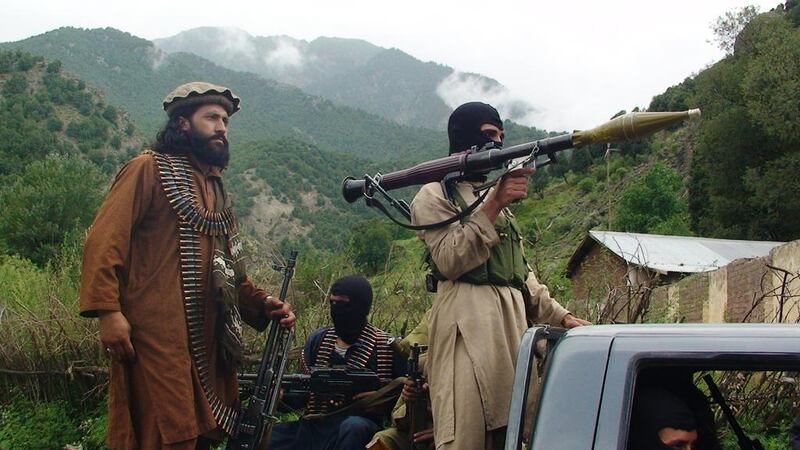Pakistan is watching Afghanistan nervously as most international forces prepare to leave the country this year, says Group Captain Sultan M Hali, a Pakistani commentator and former Air Force pilot. While Afghan leaders have blamed Pakistan for the instability that plagues the country, Capt Hali says the relationship between the two countries is complex and peace would lead to gains for both.
Quite a few Afghans, and most of us in Pakistan, believe that if there is a total withdrawal of troops we will be left at the mercy of the Taliban and some of the remnants of Al Qaeda and more chaos will follow, similar to when the Soviet Union retreated from Afghanistan in 1989.
This is a big fear for us because what happens in Afghanistan affects Pakistan and vice versa.
Islamabad is aiming for stability, but, despite dialogue, much mistrust remains.
The presence of Taliban and Al Qaeda fighters in the border area between the countries has long been a source of tension for both sides.
The Taliban trained and studied in Pakistan during the years when Afghanistan was under Soviet occupation and again, this time along the border, after the September 11 attacks and the international occupation of Afghanistan.
They have been using the area as a base to launch attacks against Kabul and other areas of Afghanistan.
Pakistan has also suffered terribly from the Taliban insurgency.
The Pakistani government has tried to crackdown on them after the urging of the United Nations and United States and Nato.
There has been backlash and numerous attacks since the US invasion of Afghanistan. Pakistan has lost about 50,000 people and more than US$10 billion (Dh36.7bn).
The Afghan president, Hamid Karzai, and the US view Pakistan’s intelligence service, ISI, as having links to the Taliban, including the Haqqani network, which has been behind several attacks in Kabul and other areas of Afghanistan.
The network is believed to be hiding in Pakistan. The Afghan government and the US has requested Pakistan crack down on them, which has not happened so far.
The US and the Afghan government are expecting Pakistan to use its influence to bring the Haqqanis and the other Taliban groups to the table for peace talks.
But Islamabad also wants Kabul to crack down on militants on its side of the border.
The Tehrik-i-Taliban Pakistan (TTP), which is made up of about 52 factions — some of which are hardened criminals, some are Islamic militants, and some are just soldiers of fortune — conduct raids in Pakistan and kidnap people.
They have been heavily financed by some vested interests outside of Pakistan who would like to keep Pakistan destabilised. The finger points towards India in this case.
Pakistan has requested Mr Karzai to capture and extradite the TTP’s leader, Maulana Fazlullah, or at least drive him out of Afghanistan.
Nothing has happened.
Despite the differences, Pakistan is very eager for peace in Afghanistan.
Peace means more trade with Afghanistan and, through Afghanistan, the Central Asian republics. Most of these countries are also landlocked and would like to reach the sea through Afghanistan and Pakistan, especially now that Pakistan’s Gwadar is becoming a more attractive international port.
The Trans-Afghanistan pipeline, which is planned to transport natural gas from Turkmenistan through Afghanistan into Pakistan and India, cannot be completed until peace is restored in Afghanistan.
This will only take place when there is an agreement with the Taliban.
foreign.desk@thenational.ae





